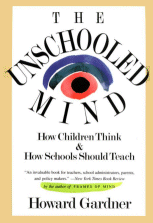IQ scores are helpful, and exactly how depends on how you look at them: better performing people - it informs us of individual differences, and who had better developed skills better performing people - it helps us understand more about the specific skills needed for performing specific tasks well, meaning that these skills could be taught better performing people - it helps us understand the difference between human intelligence and chimp, dolphin, and dog intelligence, as well as changes in intelligence over time and associated with aging, all tapping Evolutionary Psychology. On the second point, consider the impact of anxiety. People who expect to succeed find they experience a little anxiety, and it helps them perform better. People who who expect not to succeed find they experience a lot of anxiety, and it decreases their performance. Some studies have shown the best predictor of performance on a task was the anxiety ratings of participants immediately afterwards. Thus, understanding how anxiety impacts cognitive functioning requires some kind of cognitive test, like an IQ test. |
On the other hand, Ceci discusses a study of men at the race track predicting a horse's final speed in the last leg of the race when the winner's speed was known. What they found was that the "regulars" were very accurate predicting clocked speeds, but couldn't articulate all of their thoughts into some model for prediction. |  | A computer model was able to do the same as the "regulars" after some detailed interviewing and programming, but required a complex algorithm with seven variables including who the horse overcame, how far behind the lead they were each leg, and how far away from the inside rail they were too.
What was the correlation between highly accurate predictions and IQ? It was -.07. Chalk one up for s being more strong of a factor at least in some cases than Spearman realized. Understanding what tasks are unrelated to general intelligence is also helpful. | There are plenty of other areas that do not correlate so well with IQ scores, and Sternberg and Gardner point out their ideas on why this is so. They believe traditional IQ tests assess one kind of knowledge well, but omit other kinds of intelligence, and the interplay between intelligence and environment. Thus, one of our responsibilities when we report intelligence test scores is to properly educate the people using this information on how to use it. |  | | There are plenty of areas that do correlate well with IQ scores. Some interesting facts: the Armed Forces Qualification Test showed lower IQ score applicants (IQs around 80-92) hit tank targets 53% of the time. Higher IQ score applicants (IQs around 105) hit tank targets with 62% accuracy, and were able to destroy tanks 75% of the time Lubinski and Humphreys (1997) came up with a test of 25 non-IQ areas (e.g., art, health knowledge, law, travel experiences, Bible passages, fishing…) and found performance correlated .81 with IQ, but only .41 with social class, as high IQ people read more, organize their knowledge better, and hold onto it longer All this becomes an even bigger issue as many resent IQ testing altogether because it limits their children's educational options, and seems to be a "gatekeeper" for other options in life. Teachers often feel the same way, with one from the National Education Association complaining that "Kids at the top (of the IQ distribution) are reading Socrates, and kids at the bottom are reading Superman." She doesn't comment though on whether kids at the bottom could, would care to, or would benefit from reading Socrates.
Some have argued that the shortcomings in IQ tests are so serious as to mean that we would be better off not using IQ tests. This begs the question, "Without IQ tests and scores, how would you determine a child's ability level and educational needs?" You might be thinking, "Teachers could do that better." While teachers typically can assess a child's IQ better than the child's parents (since they are often more objective than parents and have a wider normative base to compare the child to), their estimates are often grossly impacted by other factors.
McLoyd discusses this data in great depth. Teachers rate poor children more negatively, provide less attention and positive reinforcement for school efforts, and set lower expectations for them. Some would reply that poor children do perform more poorly, but poverty may lead to fewer home resources (like books, educational videos, parental focus on achievement…) which could serve to prepare them for school. Thus, they come in to class less "school ready," teachers rate them lower, they perform lower, and this confirms teacher's opinions. |
Before you go on, now is a good time to summarize what you're learned. Below, write a brief explanation for how you think intelligence tests are valuable how you think intelligence tests are not valuable how you think we and the public can tell the difference
|

